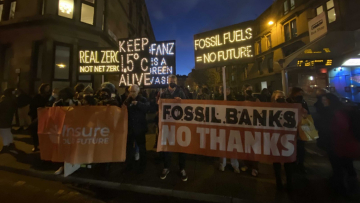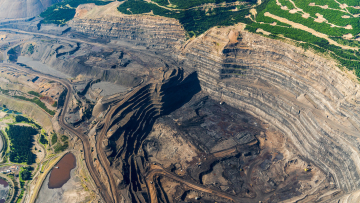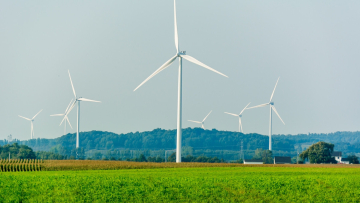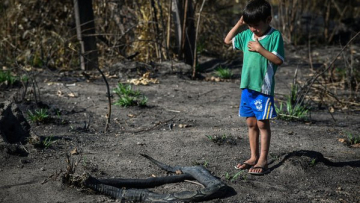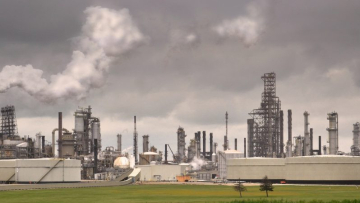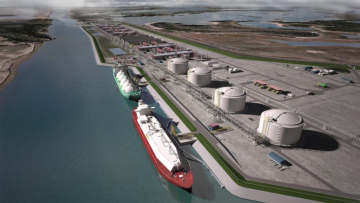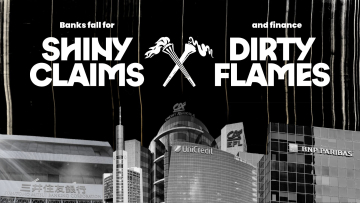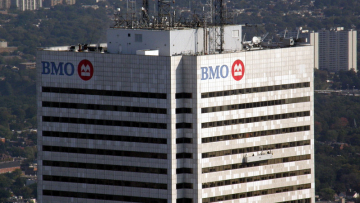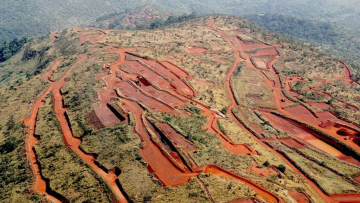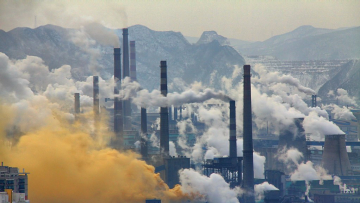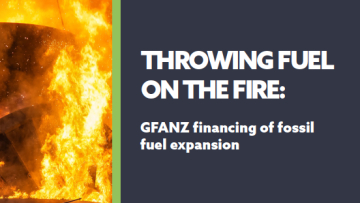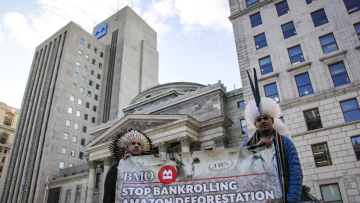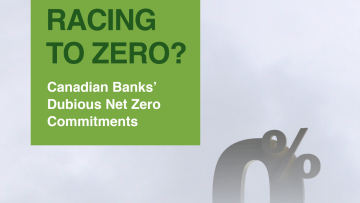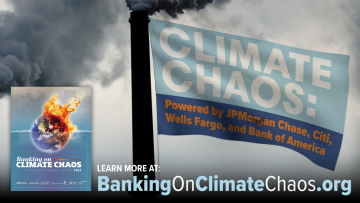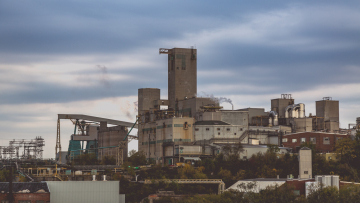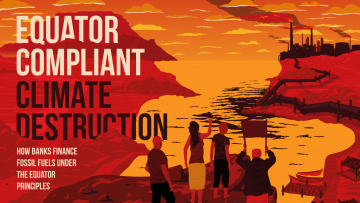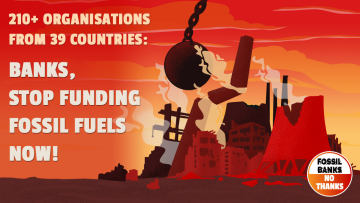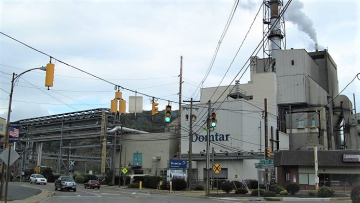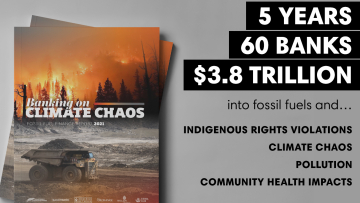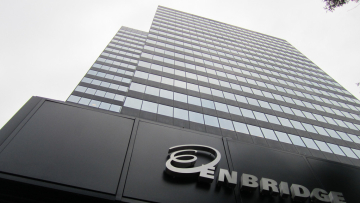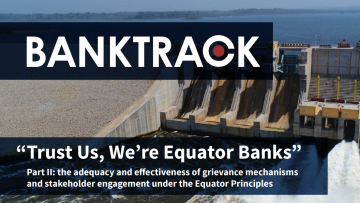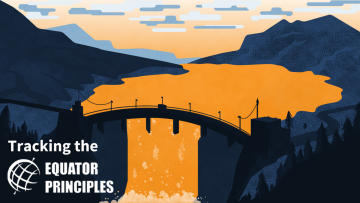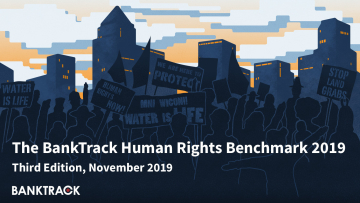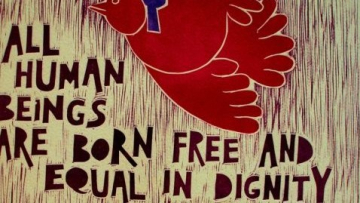
Active
This profile is actively maintained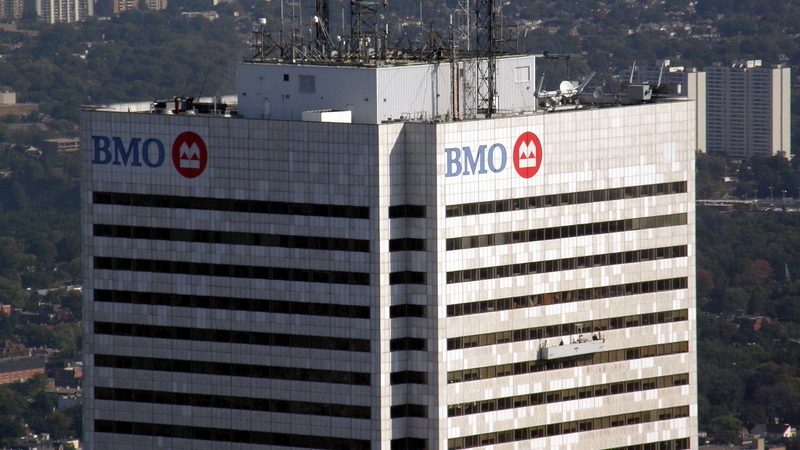
Active
This profile is actively maintained| Website | http://www.bmo.com/home |
| Headquarters |
1 First Canadian Place
ON M5X 1H3 Toronto
Canada
|
| CEO/chair |
Darryl White CEO |
| Supervisor | |
| Ownership |
listed on NYSE & Toronto Stock Exchange
BMO's shareholder structure can be accessed here. |
Established in 1817 as Bank of Montreal, BMO Financial Group is a diversified financial services provider based in North America. BMO provides retail banking, wealth management and investment banking products and services through three operating groups: Personal and Commercial Banking, Wealth Management and BMO Capital Markets. Next to its activities in Canada, BMO operates in the United States as Harris Bank and BMO Harris.
Bank of Montreal's most important sustainability commitments can be found at the website sections listed below.
Links
Bank Of Montreal (BMO) is linked to a number of companies and projects that BankTrack considers controversial (so called Dodgy Deals), e.g. as a current or past financier or through an expression of interest. The profiles below provide more details on the nature of Bank Of Montreal (BMO)'s link to these deals.
BMO does not operate a complaints or grievances channel for individuals or communities that may be adversely affected by the bank's finance.
However, the bank's whistleblowing channel SpeakUp can be used by individuals and communities to bring up human rights issues. Furthemore, BMO can be contacted via several channels including sustainability@bmo.com and corporate.responsibility@bmo.com.
Individuals and communities may also submit questions to the Ethics and Conduct Office, Office of the Ombudsperson and the Office of the Chief Sustainability Officer.
Stakeholders may raise complaints via the OECD National Contact Points (see OECD Watch guidance).
BMO is an Equator Principles signatory. While the Equator Principles have no official grievance mechanism, complaints relating to this bank's financing of Equator Principles projects can be filed through our own website www.equator-complaints.org.
This page evaluates Bank of Montreal (BMO)'s responses to instances of alleged human rights violations linked to its finance, raised by civil society organisations. It is not intended to be exhaustive, but covers selected impacts raised by BankTrack and other civil society partners since 2016. For the full scoring methodology, see here. For more information about BankTrack's evaluation of bank responses to human rights impacts, see the 2021 report "Actions speak louder: assessing bank responses to human rights violations".
Banks and Climate
The 2024 Banking on Climate Chaos report showed that BMO Financial Group provided US$ 148.613 Billion in financing to the fossil fuel industry between 2016 and 2023. In 2023 only, BMO Financial Group provided US$ 7.601 Billion for oil, gas and coal companies expanding fossil fuels. Find further details on BMO Financial Group fossil fuel portfolio and how it compares to other large banks globally on Fossil Banks No Thanks and in the Banking on Climate Chaos report.
Partner organisation Reclaim Finance tracks the coal, oil and gas policies of financial institutions, including banks, in their Coal Policy Tool (CPT) and the Oil and Gas Policy Tracker (OGPT). BankTrack works closely with Reclaim Finance and endorses their policy assessments. Find further details on their assessment of Bank of Montreal’s fossil fuel policy below.
Banks and Human Rights
BankTrack assessed BMO Financial Group in its 2024 Global Human Rights Benchmark, where it achieved 5 points out of 15 and was ranked as a “follower”.
The bank scored 0.5 out of 3 points on the new “specific rights indicators”, which assess how banks address human rights defenders, Indigenous Peoples’ right to Free, Prior and Informed Consent and environmental rights in their policies and practices.
In addition, BMO Financial Group scored 0 out of 3 on how it responds to alleged human rights violations linked to its finance, which were raised by civil society organisations. More information is detailed in the “Accountability” section of this profile.
The table below shows BankTrack's assessment of how BMO Financial Group has implemented the UN Guiding Principles on Business and Human Rights. Please click on 'expand all details' and 'explanation' for further information on the methodology.
Our policy assessments are always a work in progress. We very much welcome any feedback, especially from banks included in the assessments. Please get in touch at humanrights@banktrack.org.
Global Human Rights Benchmark 2022
Global Human Rights Benchmark 2024
Tracking the Net Zero Banking Alliance
BMO Financial Group left the Net Zero Banking Alliance (NZBA) on 17 January 2025. Before that, as a NZBA member it had committed to reduce its financed emissions to net zero by 2050; within 18 months of joining the alliance set interim targets for 2030 (or sooner) for high emission priority sectors, and within 36 months set further sector targets; set new intermediary targets every 5 years from 2030 onwards; annually publish data on emissions and progress against a transition strategy including climate-related sectoral policies; and take a robust approach to the role of offsets in transition plans. BankTrack will keep track of Goldman Sachs and other ex-NZBA member banks' climate action in a specific section of the NZBA tracker.
Banks and Steel
As part of the Net Zero Banking Alliance (NZBA), BMO Financial Group is required to set interim targets for 2030 for high emission priority sectors. For BMO Financial Group, this includes its lending to the steel sector. You can see BMO Financial Group’s iron and steel decarbonisation targets, and its progress towards meeting them in our NZBA steel targets compliance tracker:
Partner organisation Reclaim Finance’s 2023 report on metallurgical coal financing showed that BMO Financial Group provided US$ 4.7 billion in loans and underwriting to developers of new metallurgical coal between 2016 and 2022. Find further details on BMO Financial Group’s metallurgical coal financing and and how it compares to other large banks globally in the report.
Reclaim Finance also tracks the metallurgical coal policies of financial institutions, including banks, in their Coal Policy Tool. BankTrack works closely with Reclaim Finance and endorses their policy assessments. Find further details on their assessment of BMO Financial Group metallurgical coal policy below.
According to a report by Reclaim Finance, between 2016 and June 2023, BMO provided $2.6 billion in finance to the fossil-steel industry, making it the 50th largest financier worldwide. Find further details on BMO's steel financing and how it compares to other large banks globally in the report.

